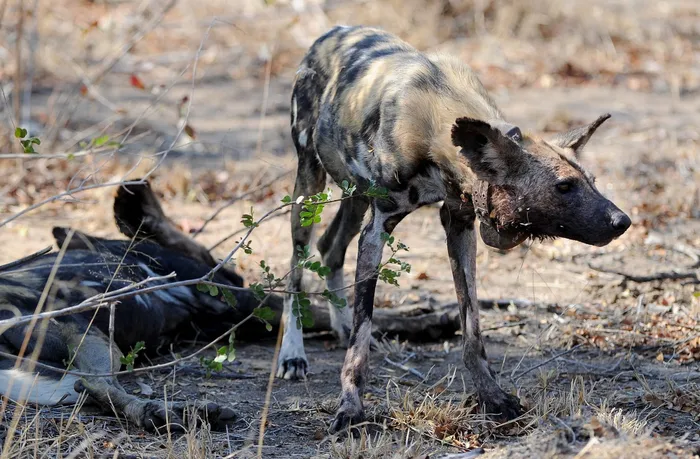Conservationists decry poisoning dogs

Conflict between people and large carnivores has been described as a leading threat to large carnivores worldwide including African wild dogs. Picture: Chris Collingridge
The recent poisoning of six African wild dogs at a private game farm along the R33, south of Lephalale in Limpopo, has been described as a senseless act that undermines the efforts of the 55 private farms that have played a role in conserving this protected pack over the last four years.
“It is a devastating loss for conservation and for South Africa’s free-roaming African wild dog population, for the Waterberg’s biodiversity, for the team of conservationists dedicated to protecting the pack, for the community, and South Africa’s heritage,” said the Endangered Wildlife Trust (EWT).
It has been monitoring the endangered African wild dog population in the Waterberg for over a decade. The Waterberg Wild Dog Initiative (WWDI) and the EWT first located and placed GPS tracking collars on the free-roaming TOOG Area Pack in 2020. Since then, dedicated conservationists have worked with local communities to conserve the pack.
Last week, six African wild dogs from the pack were found dead from confirmed poisoning at the centre of the pack’s home range. The site at which the dogs were poisoned has not yet been verified and is under investigation.
“Conflict between people and large carnivores is a leading threat to large carnivores worldwide. Conflict arises mainly when carnivores predate livestock, leading to retaliatory persecution of carnivores by farmers. In the Waterberg region, conflict occurs when carnivores predate on game species due to the rise of the game ranching industry and the subsequent financial value of wildlife.
“As a result, African wild dogs are vulnerable to persecution in the Waterberg due to their predation of natural game species within their natural range,” said the EWT.
With fewer than 650 African wild dogs left in South Africa, safeguarding the remaining population is significant, according to the organisation.
“The Waterberg wild dog population is estimated at fewer than 30 individuals.
“It is genetically distinct from populations in the Kruger National Park and on private reserves in South Africa, making this population critically crucial to a species on the verge of extinction. Recent efforts undertaken by conservationists and the community have given hope to the future of African wild dog conservation efforts in the region.
“In the last three years, over 55 privately owned properties have worked with conservationists to conserve the TOOG Area Pack, helping the pack grow in strength and contributing eight pack members to re-establish African wild dog populations in three formally protected areas.
“The pack ranges across 125 000 hectares, and the dedicated team of conservationists has engaged daily with landowners to keep the community informed about the pack’s movements, enabling community members to proactively mitigate conflict by safeguarding high-value animals.”
To mitigate conflict during stationary periods, additional projects have been implemented including an ecotourism project and live game donations to offset game losses and support the properties hosting the dogs during their denning seasons.
The intensive monitoring of the pack and the fitment of GPS tracking collars has enabled a data-driven approach to the pack’s conservation in the region, a method widely supported by the community hosting them.
African wild dogs are protected in terms of the National Environmental Management: Biodiversity Act (Act 10 of 2004) and the Threatened or Protected Species Regulations of 2007 (ToPS).
They are categorised as an Endangered Species (EN) – Indigenous species facing a high risk of extinction in the wild in the near future, although they are not critically endangered. Hunting or killing ToPS-listed species require a permit from the relevant conservation authority. Where no permits have been issued for such activities, it is a criminal act.
“It remains unknown who poisoned the dogs or for what purpose, but investigations are ongoing. Poisoning is an indiscriminate, unethical, and illegal method used to eradicate predators, and the dogs would have suffered immense pain before dying,” said the EWT.
Cape Times
Related Topics: